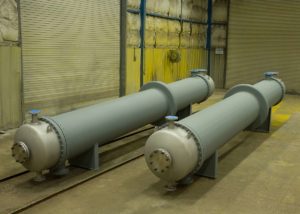Organizational structures vary from one company to the next and the recent pandemic has meant that teams are more dispersed than ever. Regardless of your current organisational structure, you should not be avoiding the performance management practices. An organisation should adopt a system that works well with the needs of the company and adapts to change. One can opt to work with an in-house team to set up a system or choose to partner with a software development company. The benefits of working with a team within the company are immeasurable. Alternatively, a company can contract professionals in this industry to help them with developing a system that works for then directly.
Although performance management models vary from one company to the next, there are certain similarities across the board. The few common characteristics are among the fundamental features that every system should have. They help improve the quality and reliability of the process and the feedback received from those involved. It’s important to first understand the factors to consider when choosing a performance management tool to ensure you aren’t just investing in a single point solution. It must solve multiple problems at different points within the organisation Some of the key elements to keep in mind include;
Number of employees
The performance management system that a company picks should have the capacity to handle the employees in the facility. Whether they are working remotely, an active stakeholder or an office manager, everyone should be included. To get accurate data from the process, the system should work effortlessly with the number of employees. The skill level of the workers also varies as well as job qualifications. All the information regarding employees should be captured and converted to valuable data to propel the growth of the organization.
Cost
The financial implications of setting up a new performance management system that a company wants is a factor that cannot be overlooked. Setting aside a budget for this venture will help one control the amount of money that they spend on the same. Your employee feedback software development company should be able to offer monthly installments, as well as an option to pay annually. Once the system is up and running, maintenance costs are another element to remember. Calculating the overall cost, including the time it takes your team to integrate, as well as maintenance is the only sure way to know how much a particular system will cost.
Collaboration tools
Performance management processes change as the company grows. After some time, the existing system will need an upgrade or additions to make it effective. When choosing a performance evaluation system, adaptability is a feature that should be on the top of the list. Incorporation of other tools, software, and systems ought to be possible in the long run.
Your chosen tool should be able to adapt as and where you need it to, as your company grows, so should the product.
Efficiency
Performance management ensures that goals are consistently being met in an effective and efficient manner in a workplace. Having a performance management process in place allows you to consistently check how your employees are performing and alternatively, who is underperforming.
Your performance management system should be able to assist with delivering employee feedback, whilst still keeping employee engagement in mind. The software should offer real-time employee feedback for regular one-to-ones, appraisals or employee reviews.
Many other factors will influence the choice of one system over the other. It is best to go with tried and tested methodologies before trying the experimental variations of the practice. Technology also comes in handy in this practice. One can opt for methods that do not involve human-human contact and use computer algorithms instead. The system must also be secure and easy to use.




